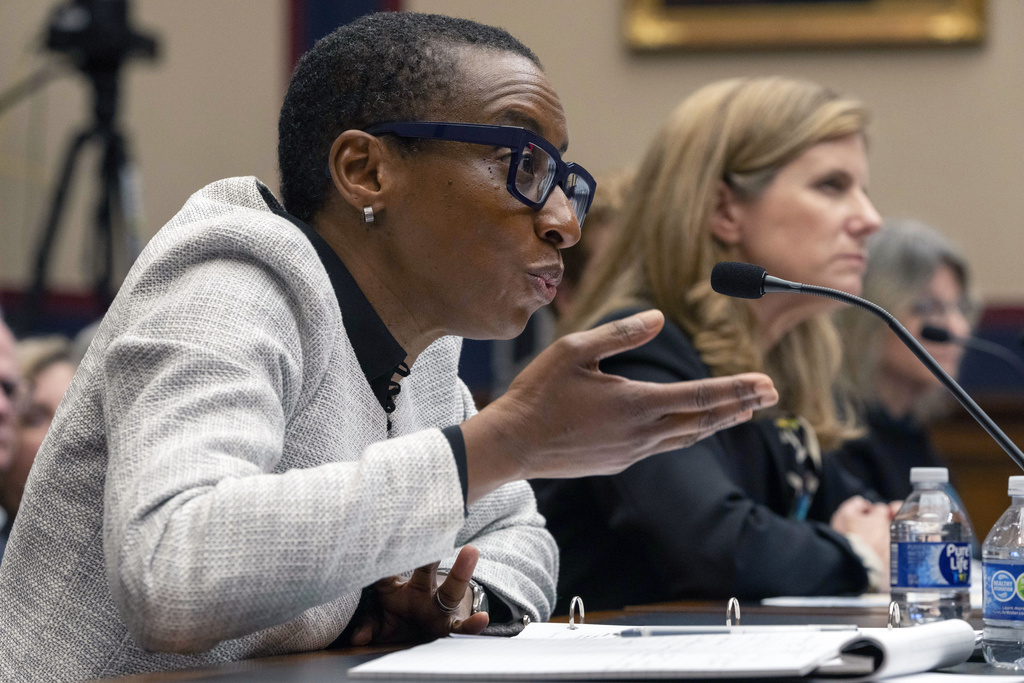A bit of guidance for university presidents contemplating testifying before Congress: Anything you say can and will be used against you in the court of public opinion.
The firestorm surrounding the testimony of three prominent university presidents concerning anti-Semitism on their campuses stemmed from U.S. Rep. Elise Stefanik’s questioning of presidents Claudine Gay of Harvard, Elizabeth Magill of the University of Pennsylvania and Sally Kornbluth of MIT.
“Does calling for the genocide of Jews violate Harvard’s rules on bullying and harassment?” she asked Gay.
Gay’s response: “It can be, depending on the context.”
Similar testimony came from all three presidents, who, in trying to convey their support for free-speech principles, came across as evasive and clueless, never summoning up genuine outrage about calls for mass extermination.
The backlash was powerful. Magill resigned, while Gay and Kornbluth survived with the support of their respective university boards.
Politicians and public opinion pointed to the testimony as evidence that university elites were protecting hate speech.
Consider, though. how all of this would have played out if the three university presidents had come from public schools:
“Does calling for the genocide of Jews violate your university’s rules on bullying and harassment?”
The response: “Calls for genocide or discrimination against people of any race or faith should be universally condemned. They undermine and damage our efforts to maintain a campus community founded upon civility, mutual respect and adherence to constitutional principles. That, of course, includes the right to freedom of speech under the First Amendment, which bars our university from punishing anyone from expressing an opinion, no matter how repulsive the view. We are committed to fighting racism and discrimination through education, support for students and the prosecution of individual threats, violence and illegal behavior.”
Would there be public outrage over that statement? One never knows in a polarized society in which politicians so often stoke the fires, but public universities cannot expel students for anti-Semitism. Decades of court decisions have firmly established that government – including universities – cannot punish ideas or opinions.
For many, the takeaway from the congressional testimony was that universities are out of touch, so caught up in their academic self-absorption that they lack empathy and the courage to do the right thing.
In truth, free speech at the overwhelming majority of public universities is alive and well, protected by the First Amendment and the legal consequences for a campus that violates it. Virtually every outrageous limit on speech stems from actions at an elite private university, the same kind of campus that populated the congressional panel grilled by Stefanik.
The rules are different at private schools because their relationship with students is actually a contractual one. Unlike public schools supported in part by taxpayers, private colleges are akin to a private club. You pay tuition and agree to follow whatever rules the school imposes.
That’s why colleges founded on religious principles can turn away applicants of another faith. It’s why private schools can establish codes of conduct that would not survive constitutional scrutiny at a public school. And it’s why schools like Harvard, Penn and MIT can in fact ban calls for genocide because of the fear it can generate and the disruption it can cause on campus.
There’s irony in presidents of elite private schools getting pilloried for clumsily trying to navigate free-speech issues amid charges of anti-Semitism. For years, conservatives have criticized colleges nationwide for a perceived lack of support for free speech.
Therein lies the real problem. In the Foundation for Individual Rights and Expression’s annual ranking of 248 U.S. colleges, Harvard ranks last, in part for disciplining professors for their speech and for cancelling controversial speakers. What is the public to make of a university discouraging troubling speech, but then pointing to the need to protect it at its most extreme?
As ugly and deeply offensive as some opinions can be, students, faculty and the public are best served by the consistent application of free-speech principles. For private schools truly committed to the free flow of information and opinions, there’s a handy template available. It’s right there at the top of the Bill of Rights.
The Free Speech Center newsletter offers a digest of First Amendment- and news media-related news every other week. Subscribe for free here: https://bit.ly/3kG9uiJ

